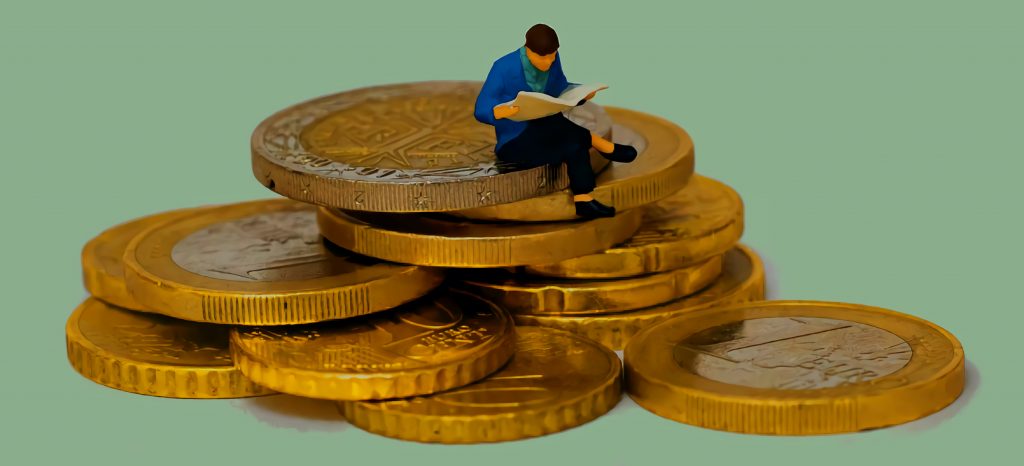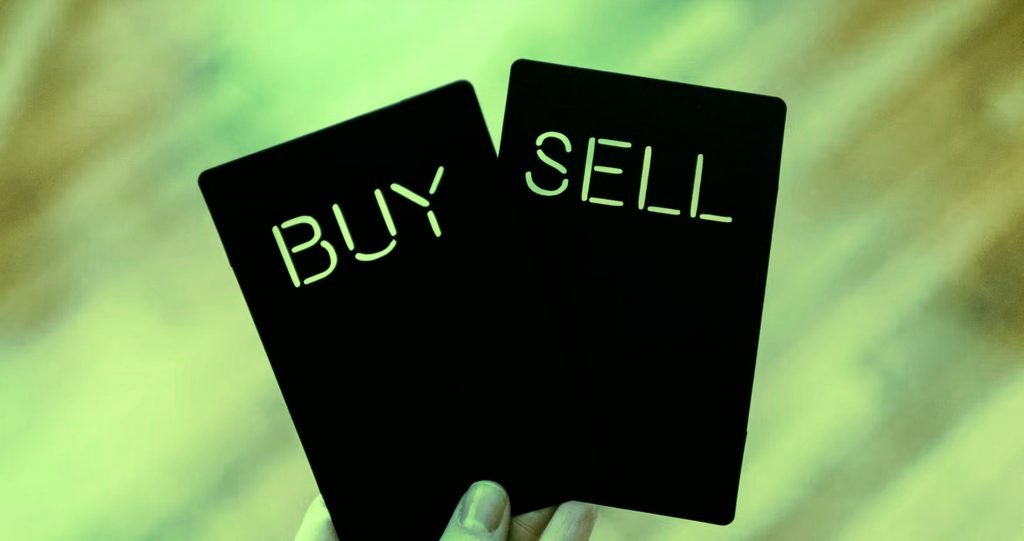L’main goal when planning for retirement is to make sure you have sufficient financial resources to maintain their lifestyle current (an ideal) for the rest of your life once you stop working.
Unfortunately, you cannot aim to become financially independent simply by putting money aside.
If you are serious about achieving yours FIRE objective, you need to start investing so that your savings do not lose value due to inflation.

Saving vs Investing
Saving and investing are equally important to your future and you should ideally do both, but keeping different goals in mind.
The savings are short term: you need to keep money ready to spend for emergencies or if you have any known upcoming expenses.
If your car suddenly breaks down, if you get a fine or if you want to go on a trip, you withdraw the money you have set aside and spend it.
Investments are long-term: you set yourself a goal, how to retire early, buy a house or start a family, and put your money to work so that it generates more money.
At least, your investment strategy should ensure that your earnings exceed the rate of inflation, otherwise you are effectively “losing” money by not investing it, because your purchasing power decreases every year (due to the fact that everything becomes more expensive).
How much money do you need to start investing?
You can start investing with any amount, even small. Indeed, I would advise you to start investing with small sums so you can familiarize yourself with how the stock market works and gradually increase and diversify your portfolio.
What's most important when investing for retirement isn't how much you invest, but how early do you start investing: it can therefore be exploited the “miraculous” effect of compound interest to grow your wealth exponentially.
Any small investment you make today will be worth much more in the future 10 years, why the longevity of your investments is as important as the capital at your disposal.

Investing in the stock market: the basics
If you are young and want to make long-term investments for your future, then the financial market (the so-called “Borsa”) it is the ideal place to start investing.
Exposure to the stock market is in fact one of the best ways to obtain long-term returns without exposing yourself to risk.
Remember: not investing your savings is a risk in itself, because every year you lose purchasing power due to inflation.
There are many ways to invest in the stock market, but let's start with the basics: what to invest in?
1. Actions
2. Bonds
And'Bond is a fixed income instrument that represents a loan made by an investor to a borrower (typically corporate or government).
Practically, when you buy a bond you make a loan to the company with the promise of receiving your initial investment back plus interest.
Bonds are low-risk investments and can help you diversify your portfolio.
If you are young, it is advisable to start investing exclusively in stocks and add bonds to your portfolio only when you are closer to your FIRE goal.
3. ETF
And exchange-traded fund (ETF) it is a type of investment that operates like a mutual fund, but it is sold and traded on the stock exchange just like stocks.
In simple terms, when you buy an ETF you buy an index that contains several financial securities at the same time, which makes it a great tool to diversify your portfolio.
An ETF can contain stocks, bonds, raw material (ad is. gold or oil), currencies and cryptocurrencies, ecc; often the securities contained in an ETF belong to the same industry (ad is. companies that use renewable energy), or selected based on performance (l’S&P 500, for example, contains titles of 500 largest companies in the USA, such as Apple, Google, Tesla, Microsoft, ecc.).
How the stock market works
The price of shares on the market is based on the classic “supply and demand” system, Meaning what, if purchases on a stock exceed sales, the price of the stock rises, while if sales exceed purchases, the stock price falls.
I trader they try to buy a stock when the price is low so they can then sell it when it rises and generate a profit, but a novice investor has difficulty adopting this strategy, because the market is difficult to predict.
If you are investing for retirement, fare trading non recommended: the best strategy is to make diversified long-term investments.
Diversification and risk mitigation
All investments involve some level of risk. If you invest in a stock and the company ceases to exist, the value of that stock can drop to zero.
In some cases, the entire market goes down, and if you have invested most of your life savings in it, this can be a source of anxiety.
However, there are two things you can and should do to mitigate risks as a long-term investor:
1. Diversify your investments.
In other words: Don't put all your eggs in one basket. Betting all your savings on a single stock is not investing, it's gambling.
But investing in ETFs (which track hundreds of actions) it's already much less risky.
You can diversify further ensuring you are exposed to various different securities such as stocks and bonds, and that your investments cover different industries and global markets rather than single country companies.
2. If the market goes down, don't panic. Wait and he will probably recover.
Historically, the financial market has suffered several collapses, like when the crisis of 2008 or the covid-19 pandemic of 2020 they hit.
Seeing your investments suddenly drop sharply can trigger the instinct to sell and try to protect what is left; but the truth is that people who do this end up losing a lot of money, while those who simply wait (or take advantage of the “discount”) they ultimately recover their investments. The market always tends to recover.
Once again, diversifying is a must: the US market has so far always recovered from a collapse within a couple of months or years at most, that of other countries such as Japan is not.
Most global exposure ETFs and long-term investment strategies today include a majority of US stocks plus stocks from other countries.

How to start investing for retirement
1. Determine your time horizon
A effective retirement strategy it must take into account your current age and the age at which you wish to retire.
The time frame between now and your retirement target is longer, the higher level of risk your portfolio can bear.
If you are young and miss them more than 30 years to retirement, It is generally recommended to have a higher percentage of your assets in the form of stocks, even if these are riskier investment securities than others.
This because, being young, you have a longer time horizon than older investors.
This means that you have more time to recover from any losses and to benefit from the higher returns offered by riskier investments.
Actions, for example, they are considered riskier investments than bonds or current accounts, but they can offer higher returns in the long run.
Even if a market crash of several years, you won't need to touch your investments and can wait for it to recover.
However, if you are already close to your FIRE goal, it is advisable to add a mix of bonds to your equity portfolio, so that we can apply the rule of 4% without having to sell shares at a lower price than you bought them at.
2. Calculate your goal
The calculation of your FI goal must also take this time frame into consideration.
Predicting how much money you will need in retirement is more difficult if you are young, Why you have to take inflation into account During the years and possible future expenses which ones to buy a house, start a family, or any health problems.
Once you have estimated your annual expenses once you retire, you can multiply this value by 25-30 (that is, apply the rule of 4%) to get an idea of what your financial goal is for retirement.
3. Choose an investment strategy
Once you know approximately how much you will need to become financially independent and what your investment time frame is, it's time to make an investment plan.
How safe do you want to play (o richiosamente) It's ultimately up to you — to recap, a portfolio made up of 100% from stocks is considered a fairly safe investment for long-term investors, ma if you decide it would be best to add some cryptocurrency to the mix, go ahead.
If you are a beginner, I recommend you start investing only a small amount in global exposure ETFs (All-World ETFs) and to adapt your strategy as you get to grips with the world of investments. You should also keep an emergency fund that you can access at any time (= liquids).
Most people recommend holding at least from 3 a 6 months' salary into this emergency fund, but it depends on your personal circumstances.
If you have a stable salaried job, you can rely on it less, if you are a freelancer living month to month, you will probably need more savings.
4. Choose a broker
A broker is an intermediary that allows you to trade stocks and other financial securities.
The choice is usually between two options: your bank and an online broker, and each has its pros and cons.
Invest through your local bank
Your bank probably has some investment options for you, although they may be limited to a select group of stocks and ETFs.
They are aimed at the majority of the population who wants to invest conservatively, i.e. low amounts with low risk and low rewards.
Banks often charge extra fees to invest on your behalf, but they have the advantage of taking care of various tax obligations for you.
Investing through an online broker
There is a growing number of online platforms that allow you to buy and sell stocks. Degiro it's probably the best option in Italy and the one I use.
Online brokers have a greater number of financial assets to choose from and allow you to trade easily with one click from your computer or smartphone.
They also tend to be pretty cheap, for example Degiro is free, other platforms like Interactive Brokers only charge a fee if your account is inactive.
The downside is that you will have to file your taxes yourself, although Degiro provides all the necessary documentation.
Investing for retirement in a nutshell
- Saving has a short-term purpose (ad is. buy a new cell phone, repay a fine), While investing has a long-term purpose (ad is. buy a house, achieve financial independence and retire). You should do both.
- Your current age and how soon you want to retire affect yours risk tolerance and they are essential for calculate your financial goals for retirement.
- You can estimate how much you need to achieve financial independence by multiplying by 25 your expected living expenses once you retire. If you are young, you have to take into account inflation and possible unexpected future expenses.
- If you are young you can adopt one higher risk investment strategy, investing exclusively in actions. As you get closer to your FIRE goal it is advisable to add bonds and other assets for diversify your portfolio.
- A simple but effective strategy consists in purchasing All-World ETF which track hundreds of company stocks from all over the world (usually with a US majority).
- One manifested itself market crash and your portfolio suddenly loses value, the best thing to do is wait for the market to recover and not sell when you are in the red. A properly diversified portfolio tends to recover from market crashes within a few months or years.
- You can invest through your bank, which may be more expensive and offer fewer products but take care of your tax burdens; or invest through an online broker platform, which often offers more options at an affordable price, but it doesn't do the tax return for you.

The Italian community of the FIRE movement (Financial Independence, Retire Early) to stop working and retire young.